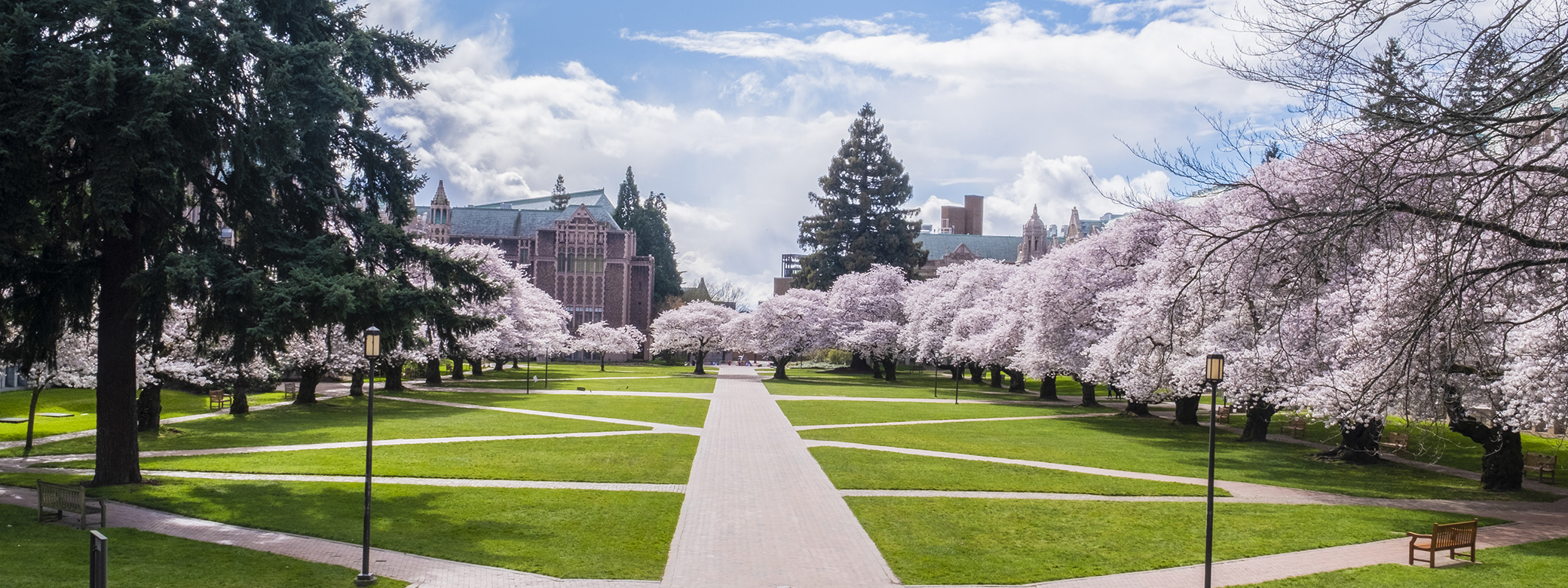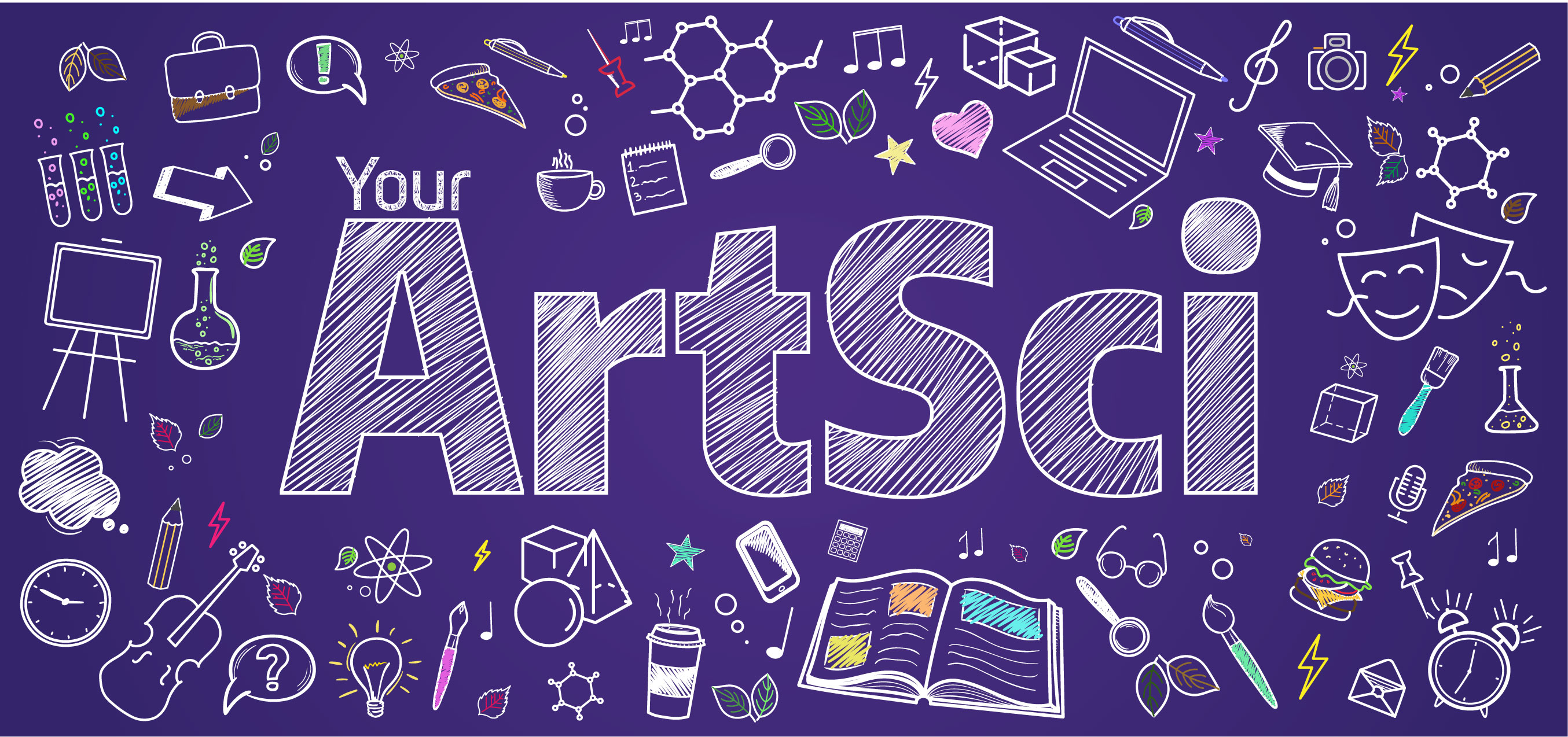
As you think about spring quarter 2024 course registration, check out these unique Arts & Sciences offerings. They’re open to all students, have no prerequisites, and fulfill Areas of Knowledge requirements as noted.
The Stories We Tell
Perspectives on Health
Identity & Culture
Science, Technology & Society
Exploring Creativity
Work & Play
More Courses
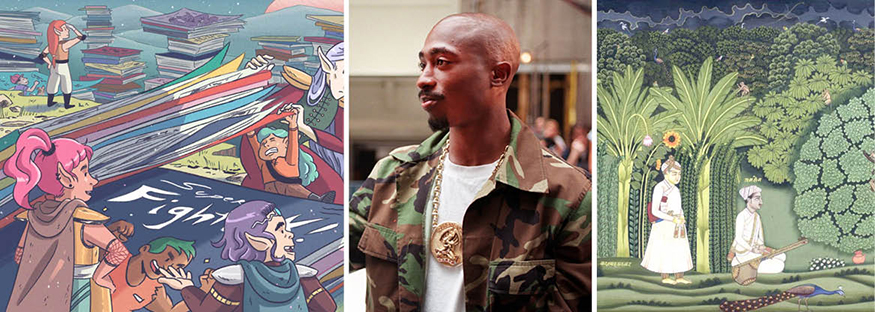
The Stories We Tell
The Literary Legacy of Tupac Shakur
CHID 250H
(listed as “Special Topics: Introduction to the History of Ideas”)
In this interdisciplinary course on the literary and philosophical influences of artist and activist Tupac Shakur, students will study a variety of primary and secondary texts — including Machiavelli’s “The Prince,” “The Autobiography of Malcolm X,” and Sun Tzu’s “The Art of War” — alongside Tupac’s writing and interviews, to understand the enduring impact of his work.
Georgia M. Roberts, Interdisciplinary Art & Sciences
5 credits, SSc
Global Comics
GLITS 252A / C LIT 252A
(listed as “Introduction to Global Literatures: Literary Genres Across Time and Place”)
In this course, students will look at and analyze comics from around the world as a way to understand the intersection of culture and literature around love, drama, comedy, epics, romance, and more. A unique take on literary study!
José Alaniz, Slavic Languages & Literatures
5 credits, A&H
Sympathy for the Devil: The Rhetoric of Compassion
GERMAN 385 / GLITS 314 / C LIT 357 / PHIL 301 / CHID 270B
(named differently by each department)
Is compassion the foundation of human morality or a dangerously unreliable emotion? This course examines the strategies and motivations in different media of fostering sympathy for commonly held enemies or discriminated groups. The syllabus runs from Ancient Greece to depictions of Nazis and terrorists in modern film, exploring empathy and compassion in philosophy, literature, film, and creative projects.
Ellwood Wiggins, German Studies
5 credits, DIV, A&H, SSc
Songs of the Saints of India
ASIAN 301 / GLITS 311B:
Listen to the songs of wisdom of India's saints. Who were the rebels, and who the conformists? Find out about their lives and explore how they live on in popular culture. This course will appeal to students interested in South Asian culture and history, oral and literary traditions, and interconnections between the past and present.
Heidi Pauwels, Asian Languages and Literature
5 credits, A&H, SSc

Perspectives on Health
Evolutionary Biology of Women
BIOA 300
How and why did human female anatomy, ovarian cycles, orgasm, birth, breastfeeding, and menopause evolve? How and why do these traits vary across populations? Can evolutionary perspectives inform issues on women's health, sexuality, and identity today? Gain a new understanding of women's bodies.
Melanie Martin, Anthropology
5 credits, NSc
Geography of Health and Healthcare
GEOG 280
Learn about health from a geographical viewpoint, including human-environment relations, development, geographical patterns of disease, and health systems in developed and developing countries.
Kessie Alexandre, Geography
5 credits, SSc
Introduction to Health Psychology
PSYCH 222
(listed as “Current Topics in Psychology”)
Health psychology focuses on the psychological influences on who gets sick, who stays healthy, and how people cope with illness. Course topics include stress and coping, personality and health, social support and health, health behaviors, and adjustment to chronic illnesses, with students encouraged to think about how the course material connects to the world around them and their own health.
Cynthia Levine, Psychology
4 credits, SSc
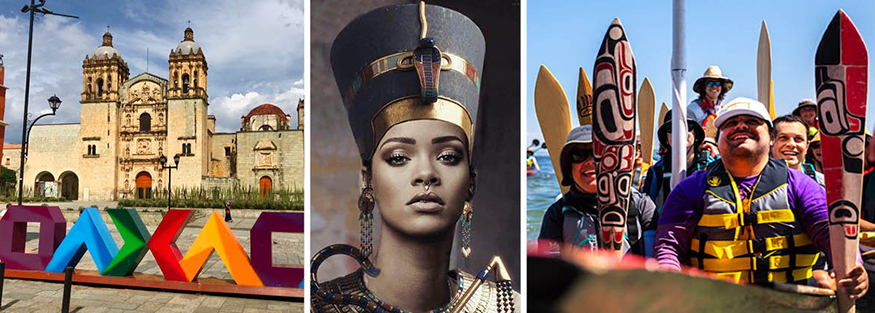
Identity & Culture
Arts & Cultures of the Northwest Coast: From Totems to Tennis Shoes
ART H 233
Learn about Indigenous art as an expression of Indigenous sovereignty, considering function, aesthetics, colonialism, and appropriation. Hear from some of today’s most influential Northwest Coast Native artists, who will share their work through class presentations or hands-on art-making workshops.
Katie Bunn-Marcuse, Art History
5 credits, A&H, SSc
Art of the Ancient Near East
MELC 301A / MELC 501A
Examine the artistic remains of ancient Mesopotamia and ancient Egypt, and learn about the ritual (religious), magical, propagandistic, and cosmological dimensions behind it — and the continued influence of Egyptomania today. After some exposure to the various ways that the ancients "read" art, the class will explore new images together and apply what we have learned to them.
Scott Noegel, Midde Eastern Languages & Civilization
3 credits, A&H
Arts and Culture of Oaxaca
SPAN 206
Through arts and culture, learn about the “unsung heroes” of the Mexican State of Oaxaca: Las Soldaderas, the women who played a significant role in the Mexican Revolution; the transgender men who fought bravely alongside them; and the Indigenous People’s ongoing resistance to outside intrusion and cultural homogenization. We’ll finish with a discussion of mole — the quintessential mestizo dish!
Jorge González Casanova, Spanish
3 credits, A&H, SSc
Tribal Canoe Journeys
AIS 475
(listed as “Research Topics in American Indian and Indigenous Studies”)
Learn about contemporary practices and the historical significance of the Tribal Canoe Journeys, an annual event of Pacific Northwest American Indian and Canadian First Nations tribes. The course includes oral histories and first-person experiences, including visits from elders in the local Indigenous community and students who participated in the canoe journey last summer as members of the UW’s Shell House Canoe Family.
Nigel Lawrence, American Indian Studies
2 credis, SSc
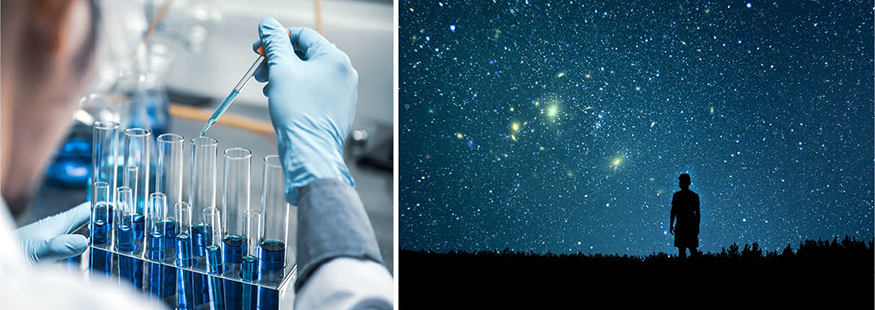
Science, Technology & Society
Pacific Indigenous Astrophysics
ASTR 190A
(listed as “Modern Topics in Astronomy for Non-Science Majors”)
How did the Indigenous peoples of the Pacific navigate, guided by the stars, wind, swells, marine life, and ancestors? What does it mean to be guided in the traditional ways of Polynesian navigation, using clues provided by nature rather than external instruments? Students will learn about the cosmos through both an Indigenous and Western lens, and how this ties into the cultural impact of reclaiming Indigenous cultural practices.
Britanny Kamai, Astronomy
5 credits, NSc
Media and Information Technology in Global Conflict
JSIS 101A
Explore the role of media and information technology in global conflicts since the twentieth century. Learn how different groups have mobilized new technologies for covert warfare, surveillance, and cyberattacks, as well as for self-determination, cultural survival, and whistleblowing. Course topics include war photography, bots and election interference, and Indigenous movements and media.
Vanessa Freije, International Studies
5 credits, SSc
Chemistry Frontiers
CHEM 196
Curious why chemistry is relevant in our society, and what research in chemistry entails? This one-credit course, intended for first- and second-year undergrads, highlights active and important research areas actively pursued in the Department of Chemistry and provides networking opportunities with UW faculty and students active in chemistry research.
Alexandra Velian and Nick Riley, Chemistry
1 credit
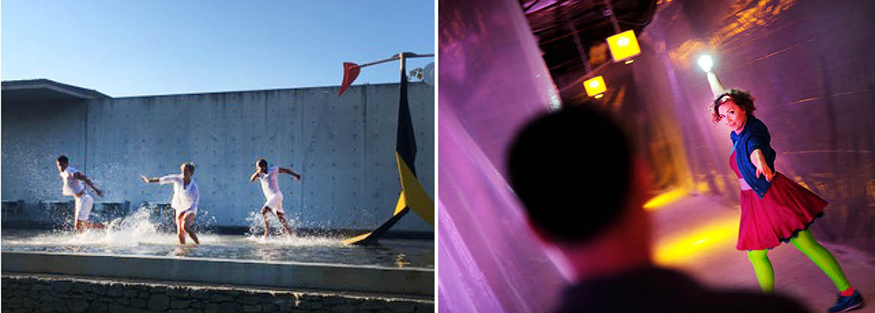
Exploring Creativity
Game Design for Live Performance
DRAMA 480
What makes a play a play? What makes a game a game? How are they similar and where are they different? What can game design teach theater about making participatory performances? Students will create four works of interactive art using the tools of acting and game design.
Adrienne Mackey, Drama
4 credits, A&H
Contemporary Dance Histories: Activating Place
DANCE 345
Explore the ways and reasons people make dance in spaces other than theaters. Using the concept of place, the course will examine how dance interacts with, activates, or disrupts sites and events. The class will enact concepts introduced during the quarter through embodied learning, creating site projects all over campus together. Embodied writing is also embedded in the course.
Jen Salk, Dance
5 credits, A&H or SSc, W
Digital Art and New Media: History, Theory, and Practice
DXARTS 200A
Investigate digital art and new media from a creative, theoretical, and historical perspective, including the intersection between art, science, and technology. The course will examine the paradigm shifts implicit in the inception and expansion of media art, as well as the dynamic core ideas that underscore digital art practices in the early twenty-first century.
Stephanie Deumer, DXARTS
5 credits, A&H
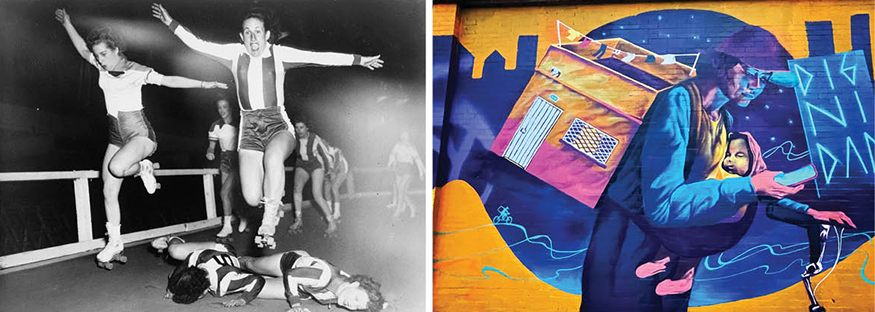
Work & Play
Gender and Gig Work
GWSS 290A
(listed as “Special Topics in Women Studies”)
In this course, we will draw on global examples of gendered work on digital platforms in ride hailing, delivery, domestic work, cloud work, and more to uncover the links between gender, power, and the gig economy.
Kavita Dattani, Gender, Women and Sexuality Studies
5 credits, SSc, DIV
Class, Labor, and American Capitalism
HSTAA/LABOR 353
The working-class struggle has been vitally important to this country’s history. Learn about the radical movements of early industrialization in America and what it means for labor movements today. The course explores themes of work, class, and labor movements, along with the history of American capitalism, touching on changes in racial, ethnic, and gender relations.
Jim Gregory, History
5 credits, SSc, DIV, W
Gender and Sport
GWSS 262
This course will focus on the relationship between sports and society, examining how assumptions about professional and amateur athletes reflect and challenge social norms about gender, sexuality, race, and class.
Shirley Yee, Gender, Women and Sexuality Studies
5 credits, SSc, DIV
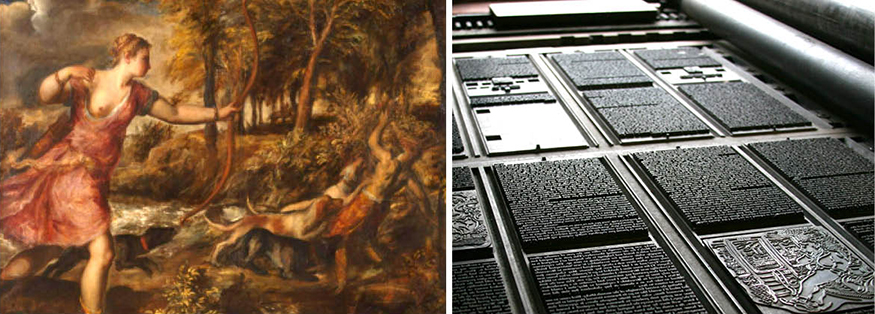
More Courses
Histories and Futures of the Book, Texts and Reading
TXTDS 224A / FRENCH 224A / HSTEU 290B
Copying, copyright, and plagiarism. Learn how new technologies have (re)shaped how texts have been written, published, read, preserved and copied from medieval hand copying to the printing press to digital copy/paste and OCR. The course focuses on shifting norms and practices of copying; the rise of copyright and conventions for citation and plagiarism, and the strain put on these norms today by digitization.
Geoffrey Turnovsky, French & Italian Studies
5 credits, SSc, A&H
Food Sovereignty Movements in Mexico and the United States
CHSTU320
Who gets to regulate food production, price, and distribution? Who gets access if the government is unable to feed its people? In this online course, learn about agrifood systems and food sovereignty movements in Mexico and Mexican-origin communities in the US, including varying modalities to promote diverse cultural, historical, and sustainable agricultural practices.
Devon Peña, Anthropology, American Ethnic Studies
5 credits, SSc
Classical Tradition
GLITS 311A / C LIT 360C / CLAS 410A
(listed as “Literature Across Times”)
The Greek and Roman imagination has fed literature, art, and thought in the Western world and beyond from antiquity until today. In this course, explore conversations across centuries between ancient and modern texts and ideas, especially in poetry but in other genres and media as well.
Stephen Hinds, Classics
5 credits, A&H
More Stories
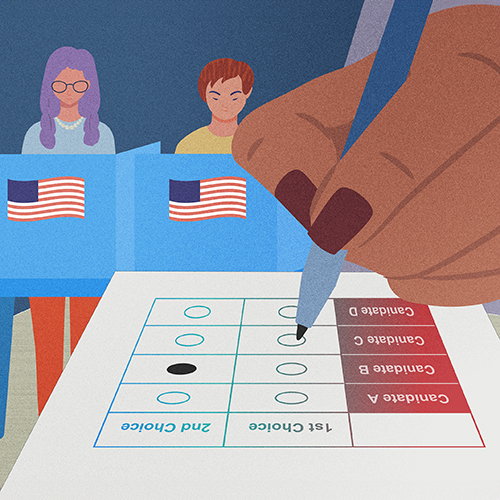
Democracy by the Numbers
Mathematics and Democracy, an undergraduate mathematics course, explores the role of math in many aspects of democracy, from elections to proportional representation.
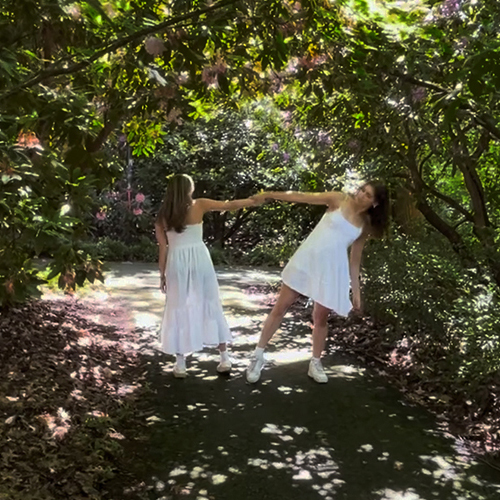
Dancing Across Campus
For the dance course "Activating Space," students danced in public spaces across the University of Washington's Seattle campus this spring.
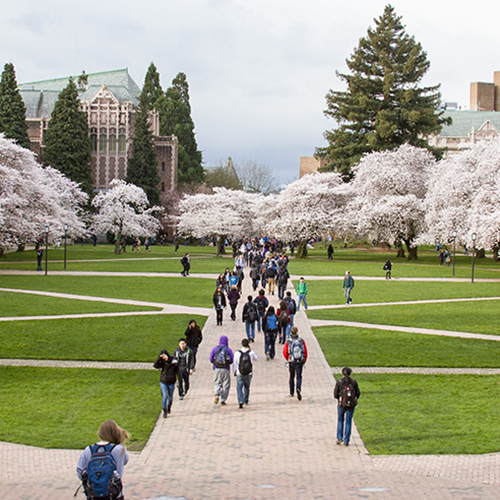
Four Students Shine as 2024 Dean's Medalists
Meet the four new graduates honored as College of Arts & Sciences Dean's Medalists for 2024.
